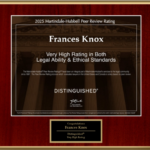[column parallax_bg=”disabled” parallax_bg_inertia=”-0.2″ extended=”false” extended_padding=”true” background_color=”” background_image=”” background_repeat=”” background_position=”” background_size=”auto” background_attachment=”” hide_bg_lowres=”false” background_video=”” vertical_padding_top=”0″ vertical_padding_bottom=”50″ more_link=”” more_text=”” left_border=”transparent” class=”” id=”” title=”” title_type=”single” animation=”none” width=”1/1″ last=”true”]
[column_1 width=”1/1″ last=”true” title=”” title_type=”single” animation=”none” implicit=”true”]
New DWI Law Makes Sweeping Changes to District Court Procedure
by Allen Brotherton
Much has been written about the new DWI law which took effect on December 1, 2006, applicable to offenses committed on or after that date. The most ballyhooed change is actually not a change at all. Specifically, the most publicized amendment is the addition of certain language to N.C.G.S. §20-138.1(a)(2), the .08 prong of the statute. The old language remains: a defendant commits the offense of impaired driving if he drives upon a street or highway or public vehicular area “[a]fter having consumed sufficient alcohol that he has, at any relevant time after the driving, an alcohol concentration of 0.08 or more.” The new law adds the following clarifying sentence: “The results of a chemical analysis shall be deemed sufficient evidence to prove a person’s alcohol concentration.” While this language is new to the statute and has been hailed as a great advance for the prosecution, previous decisions of the appellate courts had already made it clear that a trial court could accept the intoxilyzer or blood test results as sufficient to convict under the .08 prong.
However I believe another provision, one of the more overlooked portions of the amendment, could have a much greater impact on DWI trials. To understand its effect, one must first know a little about what is known as the “exclusionary rule”.
In general, the U.S. and North Carolina Constitutions guarantee the right of persons to be free from unreasonable seizures by the government. In the context of motor vehicles, the appellate courts have interpreted this as requiring that police have a particularized suspicion, which is both reasonable and articulable, of criminal activity before a person driving a vehicle may be stopped. The question arose in the 1960s as to how to enforce this limitation, along with other restraints on law enforcement, in such a way as to provide a sufficient disincentive in order to protect the rights involved. The courts eventually decided that the only way to effectively prevent law enforcement abuses was not to allow the introduction of evidence obtained in violation of the law.
Under the previous practice in DWI cases, and indeed in the practice which will still continue in all other misdemeanors in district court, when the state seeks to introduce evidence arising from the stop of a motor vehicle, a defendant can move to suppress the introduction of such evidence on the grounds that the stop was contrary to law. The court would then proceed to examine the state’s justification for the stop and, if found lacking, would not allow the evidence obtained after the stop to be admitted. This suppression, required by the exclusionary rule, would necessarily then lead to a dismissal of the charge for insufficiency of the evidence. Thus police have no incentive to violate the law.
There are also certain other types of law enforcement errors that can lead during a trial to dismissal of charges, such as denying a DWI defendant a timely opportunity to obtain exculpatory evidence by unreasonably prohibiting access to potential witnesses while he or she is held in custody.
The new law dramatically changes this procedure in favor of the state for DWI cases. First, new N.C.G.S. §20-38.6 permits a defendant in district court to move to suppress evidence or dismiss the charges in these sorts of situations only prior to the trial, unless “the defendant discovers facts not previously known” during the trial. The statute further requires that the district attorney “be granted reasonable time to procure witnesses or evidence and to conduct research required to defend against the motion” to suppress or dismiss, presumably including a continuance. If the defendant failed to make the motion prior to trial and the newly-discovered facts exception does not apply, the court may summarily deny the suppression motion.
In an unprecedented preference for the state, unless handled summarily the district court must hold a pretrial hearing on the motion, set out in writing its findings of fact and conclusions of law, and “preliminarily indicate whether the motion should be granted or denied.” If the court indicates its intent to grant a motion to suppress or dismiss, the court may not enter a final ruling on the motion “until after the state has appealed to superior court or has indicated it does not intend to appeal.”
New N.C.G.S. §20-38.7, also applicable only to DWI cases, then allows the state to immediately appeal to the superior court a district court judge’s preliminary indication that he or she will grant the motion to suppress or dismiss. If the state does not like the superior court judge’s ruling, it may further appeal to the appellate courts. By contrast, the defendant does not have the right to appeal the denial of a pretrial motion to suppress or dismiss until after the trial is held and a conviction entered.
It remains to be seen how this will play out in practice, but it appears likely that when a defendant is illegally stopped in a motor vehicle and charged with DWI, he will have to so prove to the satisfaction of three levels of judges. If any level disagrees, the state will win the battle. Thus it will be more important than ever to have good legal counsel if you are accused of impaired driving.
Allen Brotherton as well as three other attorneys with Knox Law Center, is a resident of Lincoln County and has been representing people charged with crimes, including traffic violations, for over 19 years. He can be reached at 704-372-136. The firm’s website is www.knoxlawcenter.com. Opening soon is the newest office in Denver located at Hwy 16/73- Waterside Crossing.
[/column_1]
[/column]
[column parallax_bg=”fixed” parallax_bg_inertia=”-0.2″ extended=”true” extended_padding=”true” background_color=”” background_image=”http://knoxlawcenter.com/wp-content/uploads/scales-of-justice-extra-white.jpg” background_repeat=”” background_position=”” background_size=”auto” background_attachment=”” hide_bg_lowres=”false” background_video=”” vertical_padding_top=”30″ vertical_padding_bottom=”70″ more_link=”” more_text=”” left_border=”transparent” class=”” id=”REQUEST-CONSULTATION” title=”” title_type=”single” animation=”none” width=”1/1″ last=”true”]
[text_divider type=”single”]
How Can We Serve You?
[/text_divider]
[column_1 width=”1/1″ last=”true” title=”” title_type=”single” animation=”none” implicit=”true”]
[push h=”-20″]
Fields with * are required.
[push h=”20″]
[/column_1]
[column_1 width=”1/1″ last=”true” title=”” title_type=”single” animation=”none” implicit=”true”]
[/column_1]
[/column]






